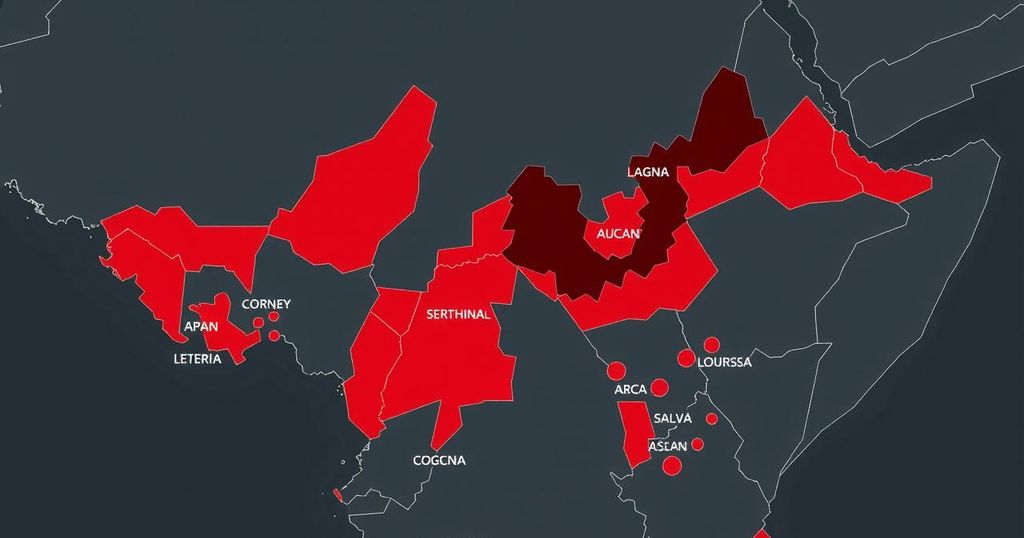South Sudan: A Nation on the Brink of War Amid Rising Tensions

South Sudan is experiencing rising tensions, highlighted by a U.N. helicopter attack that resulted in casualties. This situation reflects the instability in the country, nearly a decade after gaining independence. Political strife continues between President Kiir and Vice President Machar’s forces, worsened by U.S. aid cuts and Uganda’s military support. International organizations are urging dialogue to prevent further escalation and address governmental shortcomings ahead of upcoming elections.
South Sudan faces an alarming resurgence in conflict, following recent violent incidents, including a U.N. helicopter attack. This event highlights the deteriorating security situation in this fledgling nation, as internal tensions threaten to unravel a fragile peace agreement established seven years ago. The U.S. has responded to the rising instability by withdrawing nonemergency personnel from the country, indicating serious security concerns.
The primary factions currently clashing include the national military led by President Salva Kiir and the opposition White Army, aligned with Vice President Riek Machar. Following a civil war from 2013 to 2018 which resulted in a peace agreement, entrenched political and ethnic tensions persist. Incidents fueled by deep-seated animosities between ethnic groups have led to violence, displacement, and economic turmoil throughout the country.
Recent escalations were triggered by accusations from Machar’s coalition against the government, alleging targeted arrests of their allies. Notably, a military garrison was overtaken by the White Army, prompting retaliatory arrests of Machar’s associates by the government. The U.N. helicopter was attacked while on a mission in Upper Nile state, resulting in casualties among the crew and military personnel.
The tension is compounded by significant humanitarian challenges, exacerbated by U.S. aid reductions, which have dire consequences for food security and public health. Concerns mount that the diminution of aid programs will amplify the populace’s suffering, as illness spreads amidst dwindling resources.
Uganda has recently sent special forces to South Sudan, pledging support for President Kiir’s regime. Uganda’s military chief underscored the necessity of defending Kiir, transforming political opposition against him into a direct threat to Uganda. This military intervention is viewed as a means to maintain order but raises fears of potential regional conflict as the situation in Sudan further destabilizes the area.
In response to rising hostilities, international bodies urge South Sudanese authorities to engage in dialogue to de-escalate tensions. The Intergovernmental Authority on Development has called for the release of detained officials, while the U.N. has emphasized the importance of addressing constitutional changes ahead of impending elections. The current state of affairs remains precarious, with the specter of a new civil war looming if constructive dialogue fails to materialize.
In summary, South Sudan is on the brink of renewed conflict as recent violence underscores the fragility of peace efforts. The escalating clashes between government forces and the opposition, coupled with humanitarian crises exacerbated by significant aid reductions, present pressing challenges. As international calls for dialogue grow louder, the urgency to avert a potential return to civil war becomes paramount, especially with potential regional ramifications.
Original Source: www.nytimes.com








